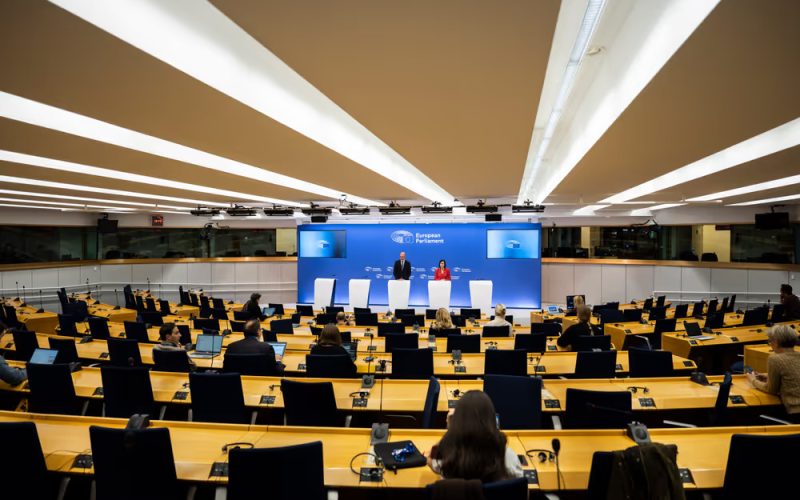The European Parliament’s Legal Affairs Committee has voted to significantly scale back corporate sustainability reporting and due diligence obligations, aiming to reduce the regulatory burden on companies.
With 17 votes in favour, six against and two abstentions, members approved a position supporting the European Commission’s “Omnibus I” simplification package. The reforms would exempt a large number of firms from mandatory sustainability reporting and limit due diligence requirements to only the biggest corporations.
Narrower scope for reporting
The revised rules would mean only companies with more than 1,000 employees and an annual net turnover above €450 million would be required to report on social and environmental matters. This goes beyond the Commission’s initial proposal, which already sought to cut the number of reporting entities by 80%.
Companies falling outside this threshold could choose to report voluntarily, following simplified Commission guidelines. Large companies would also be barred from transferring reporting burdens to smaller partners by demanding information beyond voluntary standards. Sector-specific reporting would become optional, and existing standards would be streamlined to prioritise quantitative data and reduce administrative costs.
To improve accessibility, the Commission plans to launch a digital one-stop-shop, providing free templates, guidelines and relevant information on all EU reporting requirements, complementing the European Single Access Point.
Due diligence limited to major firms
MEPs agreed that due diligence rules—obliging firms to identify and mitigate adverse impacts on human rights and the environment—should apply only to EU companies with more than 5,000 employees and a turnover exceeding €1.5 billion, as well as to foreign firms operating in the EU above the same threshold.
Under the new approach, large firms would adopt a risk-based methodology, requesting information from business partners only when there is a credible risk of negative impact. Smaller companies would only be asked for such information as a last resort.
Firms covered by the directive would still have to prepare transition plans aligning with the Paris Agreement and the shift to a sustainable economy. Liability for breaches of due diligence duties would be governed by national laws, not at EU level, though victims would retain full rights to compensation. Fines could reach up to 5% of a company’s global turnover.
Rapporteur Jörgen Warborn (EPP, Sweden) said: “Today’s vote confirms our support for simplification. We are delivering predictability for European companies, with a report that cuts costs, strengthens competitiveness, and keeps Europe’s green transition on track.”
If the European Parliament endorses the committee’s mandate during its next plenary session, negotiations with EU governments could begin on 24 October to finalise the legislative text.
Background
The European Commission introduced its Omnibus I simplification package on 26 February 2025, proposing to delay and streamline the implementation of due diligence and sustainability reporting rules. Simplification of EU corporate obligations has been a long-standing priority for the Parliament, which argues that reducing red tape will strengthen competitiveness and attract further investment across the bloc.





















